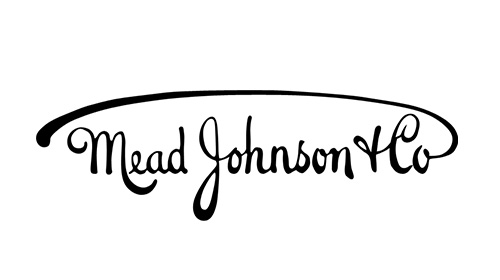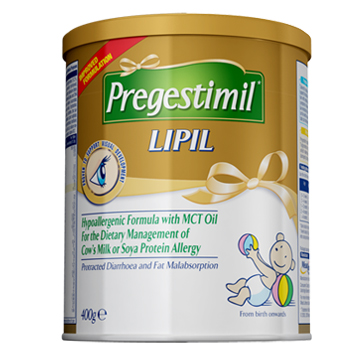
Source: Mead Johnson
While there are many publicly traded food & beverage companies, few can match the stellar financial track record of infant nutrition company Mead Johnson Nutrition (MJN +0.00%). It has been profitable in every single year of the past decade and it also grew its revenue in each year of the same period, except for 2009. Even during the global financial crisis, Mead Johnson's revenue only declined by 2% in 2009. Mead Johnson also achieved a minimum 20% return on assets from 2004 to 2013.
What's the magic behind Mead Johnson's financial success and consistency? How does it compete with peers such as Nestle (NSRGY 1.24%) and Synutra International (NASDAQ: SYUT)?
Brand equity
Have you ever wondered why there are so many varieties of private-label tissue paper brands on the shelves, yet so few private-label infant nutrition brands? This is because inferior tissue paper may just cause some discomfort, but unsafe infant nutrition products could have life and death consequences for babies. Any negative news associated with infant formula brands can be disastrous for their producers. Just ask Chinese infant formula company Synutra.
After hitting a historical high of $49 in 2008, Synutra's share price fell to as low as $6 in early 2009, and over the past three years, Synutra shares have traded below the $10 mark. Both consumers' and investors' confidence have been inevitably affected by the negative news flow of the last few years. In September 2008, eight lots of its U-Smart series of formula products were found to be contaminated with melamine.
In January 2012, local Chinese media reports linked Synutra with the case of one infant in Jiangxi, China, who died after consuming powdered milk. However, it was subsequently proven that the infant died of multi-functional organ failure and the incident had nothing to do with Synutra. This series of incidents shows that good brands are particularly important for infant products, as they serve as indicators of product safety.
Parents simply won't take the risk with unknown infant formula brands, because the health of their children is much more important. This benefits companies like Mead Johnson, whose flagship brand Enfamil is the top brand recommended by pediatricians in the U.S. Similarly, its Enfa brand is already the number one brand in China and Hong Kong, based on infant formula market-share statistics.
Mead Johnson understands that brands aren't built in a single day and it invests significantly in its quality program to protect its brand equity. It has more than 2,000 safety tests and quality checks in place, all the way from supplier verification and raw materials checks to on-site environmental testing and final product testing.
The fact that Mead Johnson has maintained its gross margin within a narrow 62%-65% range in every year of the past decade serves as the strongest indication of its pricing power.

Source: Mead Johnson
Science, not art
In April 2012, Nestle acquired Pfizer's infant-nutrition unit, making it the biggest player in the infant formula market. Pfizer's infant-nutrition unit generates approximately 85% of its revenues from emerging markets. It was the third- and fourth-largest player in the Middle East & Africa region and the Asia-Pacific region, respectively.
However, it's worth noting that even though it has 20 times the revenue of Mead Johnson, Nestle has inferior margins. In fiscal 2013, Mead Johnson achieved a gross margin and an operating margin of 64% and 24%, respectively.
In contrast, Nestle delivered a gross margin of 48% and an operating margin of 14%. Notwithstanding the varied product segments that Nestle operates and the operating leverage effect from economies of scale, Mead Johnson's superior profitability speaks volumes about its competitive advantages in the infant nutrition segment.
While adults prefer a balance of great taste and health benefits when they pick foods for their own consumption, they use a different set of criteria when they select baby nutrition products. More specifically, parents are concerned about the 'science' of nutrition, rather than the 'art' of creating good-tasting infant products.
One area of focus is brain nutrition, as all parents will want their kids to grow up to become as smart as possible. Mead Johnson takes great pains to highlight the clinically proven brain development benefits of its products in its advertisements and on its product packaging.
Based on its internal consumer-brand equity tracking, Mead Johnson finds that its brands are highly differentiated in consumers' minds on measures such as brain development and high DHA levels. That's Mead Johnson's edge over competitors such as Nestle. While taste and other product features are more commoditized and difficult to quantify, it's much harder to argue against or compete with Mead Johnson's science-based approach toward infant nutrition.
In addition, Nestle's infant products have been cast in an unfavorable light by child health groups that accuse it of using aggressive marketing tactics. One such organization, Save the Children, discovered that Nestle's sales representatives contacted Chinese mothers directly to promote the company's baby milk formula. This deprived these mothers of the opportunity of considering another alternative, like breast milk. Acts like this could be detrimental to Nestle's brand image.
Foolish final thoughts
Mead Johnson's excellent financial track record speaks for itself. It reported market share gains in its respective countries of operation in 2013. This shouldn't come as a surprise, as Mead Johnson has an strong market-leading position in the infant nutrition market by virtue of its positive brand image and science-based approach.







